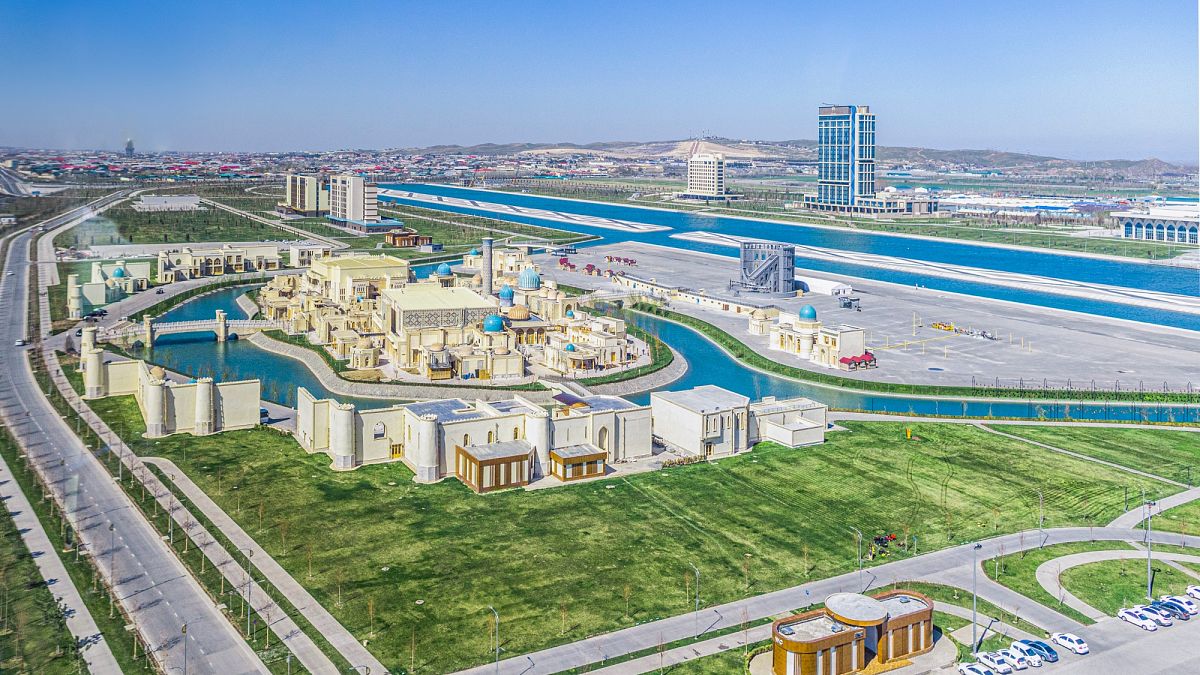Once home to ruler and astronomer Mirzo Ulugbek’s legendary observatory — a beacon of science in the 15th century — the Uzbek city of Samarkand is set to reclaim its place among the stars.
In 2028, the Silk Road city will host the International Astronautical Congress (IAC), the world’s largest space industry gathering. It reflects Uzbekistan’s goal to become an important player in the modern “space age”.
Uzbekistan’s space ambitions have accelerated since the establishment of the Uzbekcosmos Agency in 2019. The agency is reshaping how the nation uses space technologies for governance, environment, and development.
“In early 2025, Uzbekistan became one of the few countries in the world to make the use of remote sensing data mandatory by law,” said Muhiddin Ibragimov, deputy director of Uzbekcosmos. “This ensures that satellite information is officially integrated into planning and decision-making processes”.
Through optical and radar satellite imagery, the agency monitors land use, water resources, agricultural activity, and urban expansion — even detecting illegal deforestation or unauthorised construction. Automated systems compare this data with national databases, triggering alerts to relevant ministries for rapid action.
“We also apply radar-based monitoring to ensure infrastructure safety,” Ibragimov added. “By analysing radar signals, we can detect ground or structural displacements down to a few millimetres — crucial for monitoring dams, reservoirs, and industrial facilities before risks turn into disasters”.
Throughout 2024, Uzbekcosmos expanded the scale and precision of national space monitoring. Using high-resolution satellite imagery and geoinformation technologies, the agency examined key sectors such as ecology, geology, agriculture, and forestry, identifying more than 100,000 potential irregularities across the country.
Such data-driven surveillance enables authorities to address land misuse, enhance environmental oversight, and promote sustainable resource management.
In parallel with its technical advances, Uzbekistan consolidated its legal and institutional framework for space development. New laws and government decrees were enacted to regulate national space activities, introduce radar monitoring systems for seismic stability at reservoirs, and guide the integration of aerospace technologies into key economic sectors.
Over the next three years, Uzbekistan plans to expand space education and public awareness, encourage universities, ministries, and private firms to join space-related projects, and inspire young Uzbeks to pursue science, technology, and innovation.
Uzbekcosmos also deepened international cooperation through partnerships and memorandums with institutions in China, Japan, Turkey, Azerbaijan, and other nations, while fostering education and innovation domestically. Programmes such as World Space Week, the NASA Space Apps Challenge, and student satellite projects aimed to strengthen engagement among young people.
Uzbekistan’s approach reflects a broader trend of countries that have historically lagged in space increasingly stepping onto the global stage. Angelina Bekasova, senior expert on space and innovation policy at the Ministry of Economics of Latvia, emphasiszed the growing cooperation potential between Europe and Central Asia.
“Space has always been international,” Bekasova noted. “Countries like Uzbekistan are now not just clients of technology, but co-creators of solutions — building Earth observation systems and developing ground segments. This shared vision makes cooperation between Europe and Central Asia both efficient and mutually beneficial”.
Samarkand chosen to host IAC 2028
Against strong competition from China, India, and Bahrain, Samarkand was officially selected to host the International Astronautical Congress 2028, — becoming the first Central Asian city to hold this global event. The decision was announced during the IAC 2025 in Sydney, Australia.
In its bid, Uzbekistan proposed transforming the Silk Road Complex into a vibrant “Space City”, where participants will not just attend sessions but live and interact in an immersive scientific environment.
“Our idea was to merge science and culture — to make the congress an experience, not just a conference,” explained Ibragimov, who led the Uzbek delegation in Sydney. “The idea of a ‘Space City’ in Samarkand received tremendous enthusiasm”.
The IAC 2028 is expected to attract more than 10,000 participants, including major space agencies such as — NASA, ESA, JAXA, ISRO, and Roscosmos, as well as private sector leaders such as Axiom Space, Planet, Maxar, Starlink, and OneWeb. The congress in Sydney in 2025 generated about €26 million for its host economy; experts predict similar or greater benefits for Uzbekistan.
The choice of Samarkand carries deep symbolic meaning for Uzbekistan. Nearly six centuries ago, Mirzo Ulugbek, the astronomer and ruler, turned the city into a centre of knowledge with his observatory and madrasa. Today, the event’s organisers say that legacy is being revived on a cosmic scale.
“Six centuries ago, Ulugbek built an observatory that made Samarkand a global center of science,” Sherzod Shermatov, Uzbekistan’s minister of digital technologies, wrote on social media. “In 2028, the world’s largest space event will take place here,” he added, saying it would serve as “the foundation of the Third Renaissance”.

